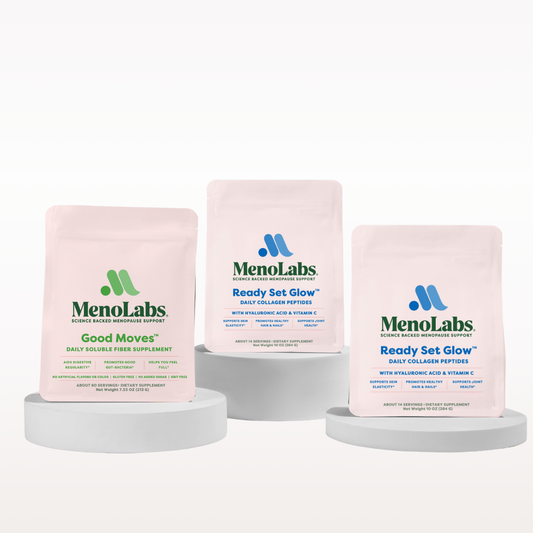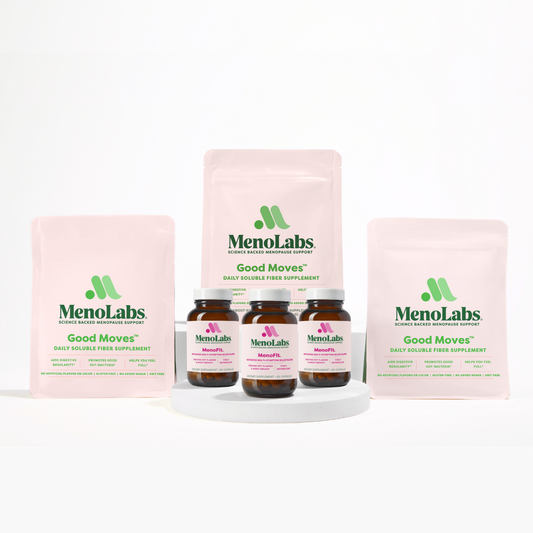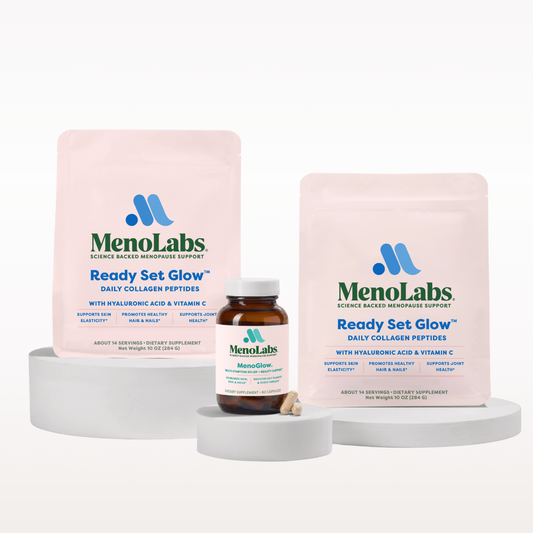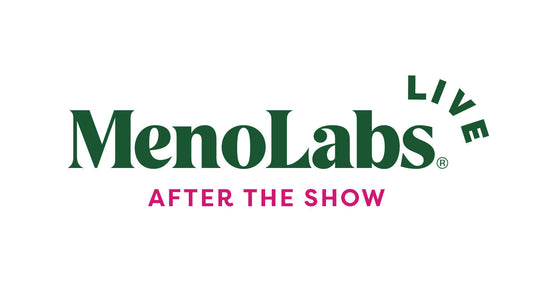Did you know that estrogen influences how your brain functions? The hormone impacts various key regions of the brain involved in learning, registering, and retrieving information necessary for judgment and language. In short, your estrogen production has a direct effect on your cognitive abilities.
So it’s no wonder that when dealing with perimenopause, many women feel like their brains aren’t working the way they used to anymore. There are many published reports and studies regarding the clinical effects of perimenopause on cognitive and physical health. As you go through perimenopause, your body's production of estrogen rises and falls. Those changes don’t just manifest in physical symptoms; they can also leave you feeling “foggy.”
But don’t lose hope! Brain fog is not an inevitable part of perimenopause. There are steps you can take to lessen its effect, or your chance of developing it.
Prioritize sleep
Life can get pretty hectic, and our sleep hygiene is often the first thing we sacrifice to make time for all our obligations. However, skipping out on hours of zzz’s will leave you less capable of doing your daily duties in the end. Without enough sleep, your brain may eventually feel burnt out.
One study showed that cognitive decline occurs in those who sleep too little (under six hours), as well as too much (over nine hours.) Your best bet is to have set times every night to lie down and every morning to get up and you consistently honor and prioritize them. Keeping a regular schedule that your mind can rely on helps it run like a well-oiled machine.
Exercise physically and mentally
In one small recent study, women who engaged in a greater amount of physical activity per week performed better on several tests of memory and brain function than those who were more sedentary. But don’t make the mistake of limiting exercise to just the physical—it’s important to include mental exercise into your daily routine, too. While your brain isn’t a muscle, it does benefit from regular work the way that muscles do. It can be as simple as listening to music, or as difficult as learning a new instrument. The important thing is to try new experiences and have fun with them.
Nourish your brain
Adding enough of the right healthy fats into your diet can give your brain the fuel it needs to function while dealing with hormonal fluctuations. Omega-3 fatty acids are known for being brain-boosting nutrients. Studies found that an increase in long-chain omega-3s in the brain reduces inflammatory cytokines, which may improve neurotransmitter function overall. The most common source of omega-3 fatty acids is fatty fish like salmon or tuna, but you can also find them in plant-based foods including flaxseed, walnuts, chia seeds, and green leafy vegetables, such as spinach and kale.
Speaking of greens, you’re going to want to increase your intake of these veggies, regardless, as they are packed with folate, another brain-nourishing nutrient that can help you navigate through perimenopause. If you love curry (and who doesn’t?), you’re in luck. Curcumin in turmeric has anti-inflammatory and antioxidant properties that improve memory, mood, and overall cognitive function.
Maintain your microbiome
There is a direct link between your mind and your stomach—and we’re not just talking about when you feel hangry. The gut-brain axis (or GBA) is the “bidirectional communication between the central and the enteric nervous system, linking emotional and cognitive centers of the brain with peripheral intestinal functions.” Long story short: if your good gut bacteria are out-of-whack, you’re going to feel that mentally, whether it be an increase in depression symptoms, lack of emotional regulation, or just general brain fog.
And when you’re going through perimenopause, changes in estrogen production don’t just affect your cognitive abilities; they can also cause imbalances in your gut bacteria. By maintaining the health of your microbiome through a healthy, fiber-filled diet and probiotic and prebiotic supplementation, you can help avoid these imbalances.
Related Products
Blend Besties Bundle
Fresh Start Bundle
4.7 / 5.0
(554) 554 total reviews












